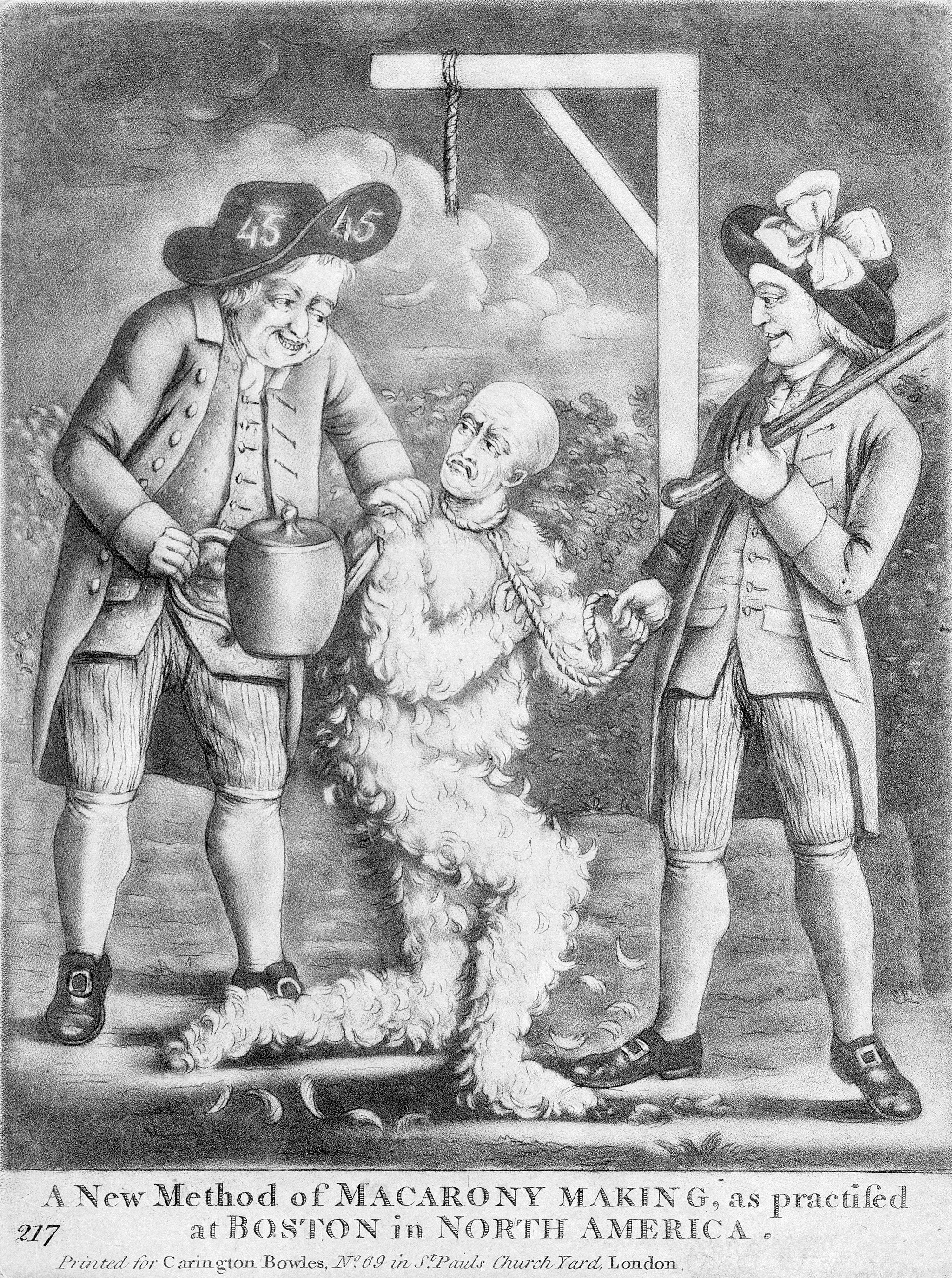The Library of Congress Tells Me About Corporal Punishment
10 Apr 2023
I’ve been reading Empire of Liberty: A history of the Early Republic, 1780-1815 by Gordon S. Wood and while it’s full of fascinating information one passage in particular recently caught my eye:
In Massachusetts in 1785 a counterfeiter was no longer executed. Instead, he was set in the pillory, taken to the gallows, where he stood with a rope around his neck for a time, whipped twenty stripes, had his left arm cut off, and finally was sentenced to three years’ hard labor.
The context here is the decline in corporal punishment for crime, which had apparently been the dominant form of punishment, and its replacement with imprisonment. The next paragraph:
Although most states did something to change their code of punishment, Pennsylvania led the way in the 1780s and 1790s in the enlightened effort, as its legislation put it, “to reclaim rather than destroy,” “to correct and reform the offenders” rather than simply to mutilate or execute them. Pennsylvania abolished all bodily punishments such as “burning in the hand” and “cutting off the ears” and ended the death penalty for all crimes except murder. Instead, the state proposed a scale of punishments based on fines and years of imprisonment.
We can see the sentiment that led to the 8th amendment developing here (banning cruel and unusual punishments, adopted in 1791).
Going back to that first quote, one portion especially stood out to me:
had his left arm cut off
This seemed far and away beyond anything I imagined occurring in that time period in the US. I know tarring and feathering was happening, and one of my general takeaways from the rest of Empire of Liberty is that 18th century “civilized” society was downright barbaric. But still, tarring and feathering was usually associated with mob violence, and state sponsored corporal punishment — especially the forced parting with one’s own arm — did indeed seem shocking to me.

All of it seemed extreme, such as burning hands and cutting off ears, but cutting off an entire arm? I had to know more. So I skimmed and cntrl+f’d my way through the sources referenced in that section of Empire of Liberty and came up short. I couldn’t find anything as extreme as cutting off an arm mentioned.
While my own research skills failed me, I was pleased to find in my search that the Library of Congress provides an Ask a Librarian resource, where you can submit a question to one of their specialists. So I did, and I was delighted to get the following detailed answer in response, with the relevant segment shared in full (and lightly formatted):
Consulting Wood we found the passage you quoted on page 493.
We next consulted Laws of the Commonwealth of Massachusetts from November 28, 1780 to February 28, 1807, 3 v., Boston, J. T. Buckingham for Thomas & Andrew, 1807. In July 1786, a law was passed, repealed in 1805, “against counterfeiting or uttering counterfeit coin”. In section 1 the law stipulates:
…That if any person shall forge or counterfeit an silver or gold money or coin, the currency of which is or shall be established and regulated by law, or shall forge or counterfeit any silver or gold money or coin that is or shall be current in this Commonwealth, he shall be fined at the discretion of the court; be set in the pillory for the space of one hour, and then have one of his ears cut off; and from thence be drawn to the gallows, and set thereon with a rope about his neck for the space of one hour, and shall be whipped, not exceeding forty stripes, and shall be sentenced to hard labor for a term of not more than seven years. — Act of July 4, 1786, vol 1, pp 329-332
As mentioned the law was repealed in 1805. In the subsequent law the matter of punishment for counterfeiting coins was addressed in section 6 as follows:
…That if any person shall forge or counterfeit, or shall procure to be forged or counterfeited, or shall willingly aid or assist in forging or counterfeiting any gold or silver coin, current within this Commonwealth, by the laws or usages there of; or if any person, knowing of such forging and counterfeiting, shall willing aid or or assist in passing and rendering current as true, and such forged or counterfeit coin, and for that purpose shall, at any one time, possess any number not less than ten or similar pieces of false money or coin, forge and counterfeited to the similitude of the gold or silver money or coin current as aforesaid, with intent to utter the same as true, knowing the same to be false, forged and counterfeit, every person so offending in either of the particulars aforesaid, who shall be convicted thereof in the Supreme Judicial Court, shall be punished by solitary imprisonment, for a term, not exceeding one year, and by confinement afterwards to hard labour for and during his or her life. — Act of March 15, 1805, vol. 3, pp. 277-281
We can found nothing about cutting off an arm as punishment for counterfeiting. Although capital punishment for counterfeiting was imposed in Massachusetts and other colonies during the 18th century since under English law the act was considered to be treason, it was discontinued later in the century. We reviewed Edwin Powers Crime and Punishment in Early Massachusetts, 1620-1692: A documentary history, Boston: 1966. On page 307, in a section on treason, Powers documents that the crime included
…or to counterfeit the kings great or privy seal, or the seal of this province. — (citing Prov. Laws ch. 12, 1696)
Powers mentions this law was amended during the War for Independence to make supporting the crown a capital crime.
We also reviewed articles by Gordon Wood in the database America: History and Life with full text, but no reference could be found.It is possible that Wood examined early court records but did not provide a citation.
We next searched Hein Online : State Reports a Historical Archives for the term “counterfeit” and the years 1770-1800. Although 46 cases were located none were from Massachusetts. We advise you to contact the staff of the library at the American Antiquarian Society, who might have other insights or resources. We hope you find this information helpful and wish you the best in your research.
Dang, it’s amazing to me that I can send an email off to an expert employed by the government and get such an in-depth response! I haven’t followed up with the American Antiquarian Society as I’m not sure how much more time of these wonderful experts I should waste on this passing interest of mine. My current feeling is that the lopping off of arms for counterfeiting most likely didn’t happen in the US during that time and that some kind of error occurred in writing of the originally quoted passage. Though I realize I haven’t done nearly enough research to make that assertion with confidence, so please accept a heaping helping of salt along with my opinion.
By the way, I definitely recommend Empire of Liberty to anyone interested in US history at the close of the 18th and beginning of the 19th century. It’s given me a whole new appreciation for the modern state of our politics and society, and as much lamenting as there is about the hostile state of our current political environment I think it’s refreshing to see still more evidence that everything old is new again, even when it comes to politicians being completely childish towards one another.






